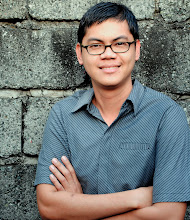 That nerd looking guy on the left with curly black hair should be a model to all aspiring Filipino chess teacher/coaches
That nerd looking guy on the left with curly black hair should be a model to all aspiring Filipino chess teacher/coachesI say Filipino chess masters/teachers who are aspiring to become a future chess school coaches should learn a thing or two with Bruce Pandolfini. Yours truly consider him as one of the best teacher for beginner and intermediate chess players. Great thing here is that Pandolfini's book come in handy. Rarely you will find a local bookstore (the National Bookstore, for instance) with wide collection of books about chess that don't sell any of his very informative books. In fact, hardly you will find a Filipino chess book collectors who don't own a copy from any of his writings. You may want to ask and borrow their copies of the books (sorry about mentioning the copyright issues) then reproduced them by scanning or photo copying but please do not sell them ok? I myself treasures about half a dozen copies of his books. Pandolfini is the players teacher and the teachers coach. Learn and study his style of teaching and I can assure you that not only you'll become a good and competitive teacher/coach, you'll be credited someday as the teacher of a 12 year old Filipino grandmaster.
Question: Bishops are considered better than knights. Yet Capablanca believed (Capablanca’s principle?) that a queen and knight are superior to a queen and bishop in the endgame. Could you say a few words about this? Why is this true? Thank you for writing a good provocative column. Jan Martens (The Netherlands)
Pandolfini: I think I’ve answered a comparable question before, though if I haven’t I should have, since this question comes up in many endgame discussions that apply. Capablanca said a lot of things, most of which are beautifully true and elegant. Ever since I first encountered that idea I assumed it was true as well. The reasoning behind it has to do with the chief asset the knight offers over the bishop: its ability to guard squares of both colors. Since the queen is the main attack force in the tandem of queen and minor piece, the knight has the advantage of being able to protect the queen on more support points. But the bishop has other advantages over the knight, and recent statistical studies suggest the queen and bishop team does at least as well as the other one-two punch. I think you have to factor in that Capablanca had a special facility for the handling of knights (think of his incredible maneuvers against Yates (see below). Besides, even though quantity may betoken some qualities, I don’t think Capablanca’s intuitive aesthetic, understanding, and sensibility have to stand up to the hard crunch of numbers. When he employed his methods, whatever they were, he usually made them work with the power of complete mastery and consummate artistry.
Question: In one of your recent books, I think Treasure Chess or a business chess book (ha ha), you refer to a story concerning Capablanca. Supposedly, he lost the exchange and eventually drew anyway. To prove that he couldn’t have made a mistake, presumably because he was the great Capablanca, he then deliberately played into the same line the next time he had the opportunity, lost the exchange once again, and once again managed to draw. This is obviously a made up story, probably created by you to sell books. In his life Capablanca never lost the exchange by the same variation on consecutive occasions. He was much more objective than that and now you’ve been caught in a web of fabrication. I have enjoyed your column and books on occasion, especially your introduction of different types of concepts and unusual yarns, but you’re not going to get away with this one. Randall Holmgren (USA)
Pandolfini: He was an extraordinary player, though I’m surprised by all this interest in Capablanca. Anyhow, I appreciate your nice thoughts on my column and books, with their different types of concepts and unusual yarns. I also want to thank you for setting me straight on the matter. Apparently, you’re not the only one to object to my account, since recently I received another email saying fairly much the same thing. Perhaps you’re right. The story is hardly original to me, though admittedly I can’t seem to find the source (Reinfeld, Chernev, Capablanca, who knows).
Q & A with Bruce Pandolfini are taken from ChessCafe.com










No comments:
Post a Comment